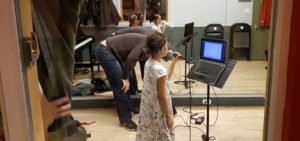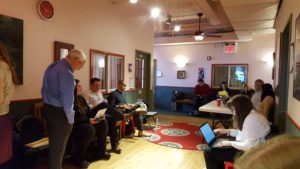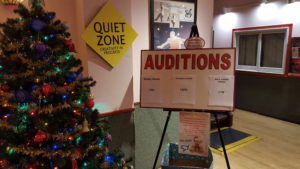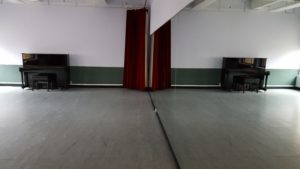 I spent a week in New York City attending a conference on how to pitch a novel to an agent or editor. Selling fiction is the least appealing part of the writing adventure. I write because I enjoy the thrill of creative work and artistic expression, and because I imagine I can delight others with a tale. Selling a manuscript is not on the list of attractions, but it’s necessary if one hopes to find an audience. It was time, past time, to try and find a serious publisher for my work. Thus the how-to conference.
I spent a week in New York City attending a conference on how to pitch a novel to an agent or editor. Selling fiction is the least appealing part of the writing adventure. I write because I enjoy the thrill of creative work and artistic expression, and because I imagine I can delight others with a tale. Selling a manuscript is not on the list of attractions, but it’s necessary if one hopes to find an audience. It was time, past time, to try and find a serious publisher for my work. Thus the how-to conference.
The pre-conference “homework” was explicit about describing the novel being pitched and it wasn’t easy. What exactly is my main character’s secondary conflict? How should I describe my antagonist’s endgame? It was a difficult exercise in seeing the manuscript from the other side of the table. I did the homework, prepared my pitch and went to the Big Apple to test it. The result was a revelatory roller-coaster.
 The meetings were held in a nondescript office building in Manhattan. Two floors were dedicated to performing arts and were thronged with people auditioning for parts or using the many practice rooms. Up front, near the elevators, a bulletin board on an easel listed the auditions for that morning. The labyrinthine hallways were lined with wooden benches, folding chairs, park benches, and plastic patio chairs pressed against thickly-painted wooden wainscoting. All that seating was filled with people, mostly young, studying scripts and scores, reading, and talking nervously.
The meetings were held in a nondescript office building in Manhattan. Two floors were dedicated to performing arts and were thronged with people auditioning for parts or using the many practice rooms. Up front, near the elevators, a bulletin board on an easel listed the auditions for that morning. The labyrinthine hallways were lined with wooden benches, folding chairs, park benches, and plastic patio chairs pressed against thickly-painted wooden wainscoting. All that seating was filled with people, mostly young, studying scripts and scores, reading, and talking nervously.
 As I navigated the corridors, a changing spectrum of music and voices came from behind closed doors – people practicing scales, singing show tunes or operatic arias. Pianos plinked and choirs harmonized. Waves of cacophony drew me deeper.
As I navigated the corridors, a changing spectrum of music and voices came from behind closed doors – people practicing scales, singing show tunes or operatic arias. Pianos plinked and choirs harmonized. Waves of cacophony drew me deeper.
I found myself blocked by young women in leotards lying on their backs, stretching their legs in the air. I knew it was not the correct zone. Writers don’t wear ballet slippers. An older woman with short gray hair, holding a clipboard, popped out of a doorway and barked, “Zellner?” Somebody, presumably Zellner, got up from a bench and went in.
 I found my way to a corridor lined with what looked like writers. Most were hunched over laptops balanced on their knees. I sat and verified it was the place. Before long the door to the practice/audition room opened and three dozen writers went inside. The room was large, cold, and bare, covered with well-scuffed pale hardwood, walled on one end with floor-to-ceiling mirror, and on two sides with wood-framed windows with dirty glass overlooking 8th Avenue and 37th Streets. A black upright piano guarded the other wall. We sat in folding chairs facing a folding table.
I found my way to a corridor lined with what looked like writers. Most were hunched over laptops balanced on their knees. I sat and verified it was the place. Before long the door to the practice/audition room opened and three dozen writers went inside. The room was large, cold, and bare, covered with well-scuffed pale hardwood, walled on one end with floor-to-ceiling mirror, and on two sides with wood-framed windows with dirty glass overlooking 8th Avenue and 37th Streets. A black upright piano guarded the other wall. We sat in folding chairs facing a folding table.
The conference conveners called out names and assigned us to groups presumably based on our homework submissions, and we dispersed to other, similar rooms for our first meeting. In my meeting the leader introduced herself then we went “around the room” with people giving names and describing their project. That’s what we call a novel-in-progress, a “project,” because no novel is ever “completed.” You just revise it over and over until you give up in exhaustion and that counts as “done.” For the time being.
I was in the “literary fiction” group. People in my group, I learned, were MFAs, college writing instructors, and screenwriters. Their projects focused on family infighting, questions of ethnic identity, kinship relations, and family secrets uncovered. My heart sank. These projects sounded deadly. When it was my turn, I was abashed.
“Well, my story does feature a space-alien, so I guess that makes it sci-fi.”
The room went silent, as if I had just laid a turd on the floor. The instructor stared at me.
“You have an alien?”
“Yup.”
“Oh, dear. Are you supposed to be in this group?”
“This is where I was assigned.”
“No, no no. Let me check.”
 The instructor leapt to her feet and bolted from the room. She returned in a minute told me I was supposed to be in Studio “P” for genre. Okay. So I gathered my things. As I left, one of the students said,
The instructor leapt to her feet and bolted from the room. She returned in a minute told me I was supposed to be in Studio “P” for genre. Okay. So I gathered my things. As I left, one of the students said,
“I liked that alien. The one who looks like a green beach ball? That sounds really interesting.” She had read it on the online site where we posted the homework.
I smiled and rushed over to Studio P, thinking, I can’t believe I’ve just been kicked out of literary fiction! What does that mean?
I found the new group in progress, grabbed and unfolded a chair at the end of the semicircle, and the leader suddenly finished his introductory spiel and turned to me and said, “Okay, let’s start on this end. Let’s hear your pitch.”
I don’t have my computer started, don’t even have my notebook out of my brief case. Everyone stares at me. I start talking. I do know my material, but I have nothing to read from. I’m winging it.
At the end of my pitch, the leader looks at me and says,
“Humor doesn’t sell. You got anything else?”
He was only half-kidding. He was a wiseguy, though well-meaning, I eventually learned. Flustered, I babbled for a moment, then let it go. Next victim.
Other pitches didn’t go as well as mine. One, the leader interrupted mid-sentence.
“Did you say a school for wizards?”
“Yes.”
“Get out.” He pointed to the door.
The student flushed with color but hung his head and didn’t leave.
“And if anybody has vampires or zombies, go with him now,” the instructor added.
“Steam punk?” one student asked.
“Out.”
Brutal is hardly the word for it. The writers in the room were paralyzed so the instructor let up on his tough-guy persona and started to explain why the pitches so far were no good and what it would take for a successful pitch. Nobody actually had to leave.
The interviews then continued with everybody having an equal chance to be abused and ravaged by the workshop leader. He knew the NY publishing market and purported to know what sells and what doesn’t and the exact reasons why each pitch stank. It was educational.
 As I staggered out of the audition room for the lunch break, the hallways were still lined with hopefuls waiting to be called, the air still filled with do-me-so-do’s. I had to weave around clusters of tiny girls in pink tights and white tutus herded by anxious mothers. I saw at the front there was an audition for a production of “Annie.”
As I staggered out of the audition room for the lunch break, the hallways were still lined with hopefuls waiting to be called, the air still filled with do-me-so-do’s. I had to weave around clusters of tiny girls in pink tights and white tutus herded by anxious mothers. I saw at the front there was an audition for a production of “Annie.”
Thank God I’m not in show business, I thought. Then: Wait! I am in show business! What I’m doing here has nothing to do with writing and everything to do with performance. Oh, God.
 To be continued…
To be continued…
